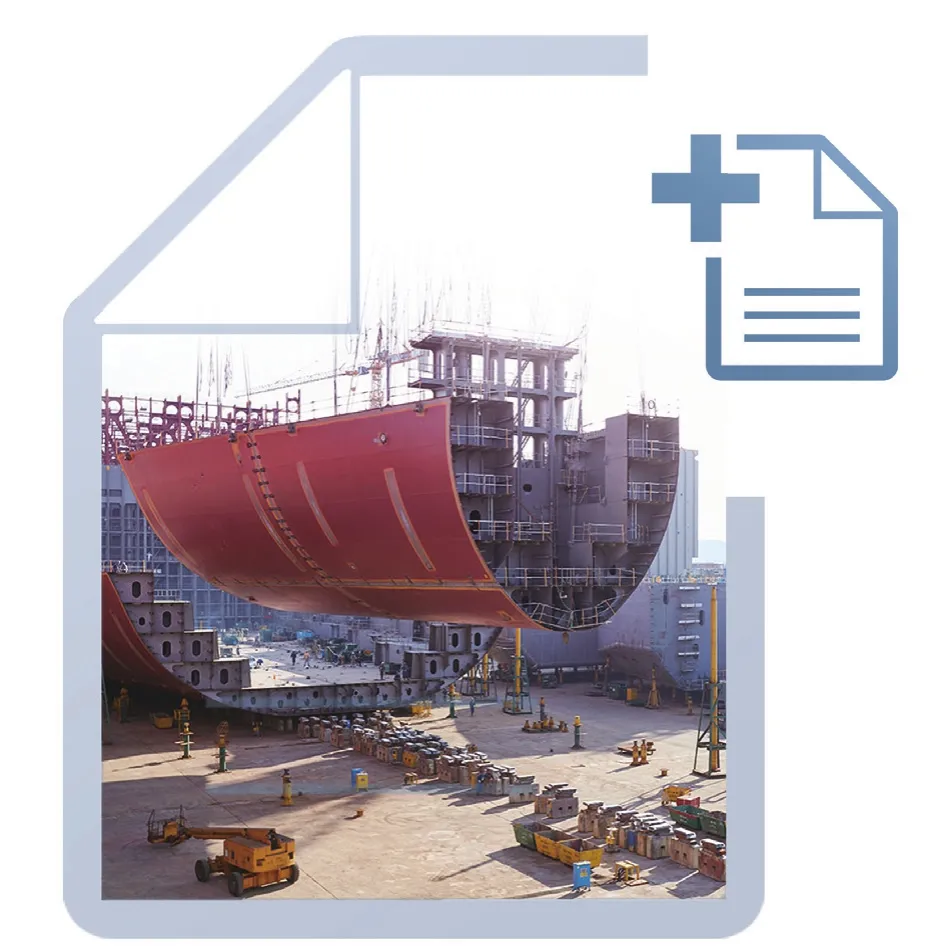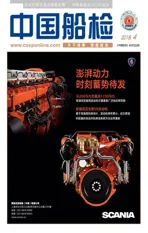The in fl uence of South Korea grabbing orders with low price
2018-05-02ReporterXuMiaomiao
Reporter Xu Miaomiao
According to South Korea’s media analysis, the performance of South Korean ship yards since the beginning of the year has benef i ted from macroeconomic factors such as the growth rate of the world economy and international oil prices, which are developing in a favorable direction to the shipbuilding industry. Aside from these external factors that are beneficial to all countries, in 2017, after the new president Moon Jae-in took off i ce, the Korean government proposed a number of favorable measures for the shipbuilding industry,among which two “loosening” policies were the most effective.
According to the current order situation, grabbing orders with low price by South Korea has the most obvious and direct impact on China. According to Yin Qing, the analyst of the Economic Research Center of SCIC, it is mainly shown in the following two aspects: fi rstly, a part of the main ship type market is eroded. China's price advantage has been weakened by the price reduction of Korean companies, which will further reduce the price of Chinese shipyards and occupy part of China's market share. Secondly, most of the high-end products market is occupied. The previous price restrictions have also allowed South Korea to lose high-end product orders, mainly because the South Korean ship yards are restricted by price limit, and the bid price is higher than Chinese ship yards. South Korea has an obvious competitive advantage in the high-end product market,and the competitive advantage is converted into the order advantage with the relaxation of the order limit.
As to the trend of the ship and market in 2018, at the beginning of this year, the economic and research center of SCCS has predicted the global new ship order would be 75 million DWT in 2018, and the SCIC forecasted that it would be 90 million DWT, the China Shipbuilding Industry Association forecasted that it would 7~7.5 million DWT. The general view is that the demand of ships in 2018 is same or slightly improved compared with that in 2017, but in the long run, the quantity of order received is only at the average level since the economic crisis.
In recent years, the market share of new ship transaction among China, Japan and South Korea has been significantly adjusted, mainly due to the adjustment of product structure and policy order adjustment. Judging from the order structure in 2018, the supply and demand relationship of both the container transport market and the dry bulk transport market will continue to improve,but the problem of excess capacity in the tanker transport market and the liquef i ed natural gas shipping market will remain outstanding.
In terms of container ship, in addition to the ultra large container ship, the market of other types will be boosted to different degrees. The bulk carrier market will be more active, but the VLOC demand will fall with the grant of the transport agreement of the Vale. In terms of the oil tanker, the demand for small and mediumsized product oil tankers is relatively large, and the large tanker market will go sluggish. Besides, the market of special ships, such as vehicle carriers, ro-ro ships and so on, is still worthy of attention. Judging from the support of the governments in 2018, China, Japan, and South Korea will continue to increase support for their own shipbuilding industry. The desire of the South Korean’s government to save the market will be more urgent and stronger. In addition, Japan is not intense to receive ship order due to it has abundant orders in hand, but South Korea and China are more intense to receive orders due to their insuff i cient handheld orders.

Judging from the competition situation of the world shipbuilding industry in the future, the situation of three-pole confrontation will be continued for a long time. According to Yin Qing, South Korea is not a country which returned to shipbuilding power, but has always been a shipbuilding power. Although it has encountered diff i culties, and its market share has dropped occasionally, its comprehensive competitiveness is still in the lead. Once the market rebounded, the advantages will become obvious immediately. The competitiveness of Japan has been declining for many years, and the market share is generally declining. Its steady management strategy plays a role in the financial crisis, and the declining trend of competitiveness has been relieved,so that it will have time to promote industrial structure adjustment and continue the industrial competitiveness.
With the help of “bull market” before 2008, China’s shipbuilding scale increased significantly, and its market share increased significantly, too. The financial crisis has forced the transformation and upgrading of China’s shipbuilding industry. The process is painful,but Chinese government has positive attitude. It can be said that the current ship market crisis is both a challenge and an opportunity for China’s shipbuilding industry.Therefore, according to the overall market judgment and the analysis of the main factors, the competition in 2018 is still focused on China and South Korea, and South Korea’s order share is likely to exceed China.
